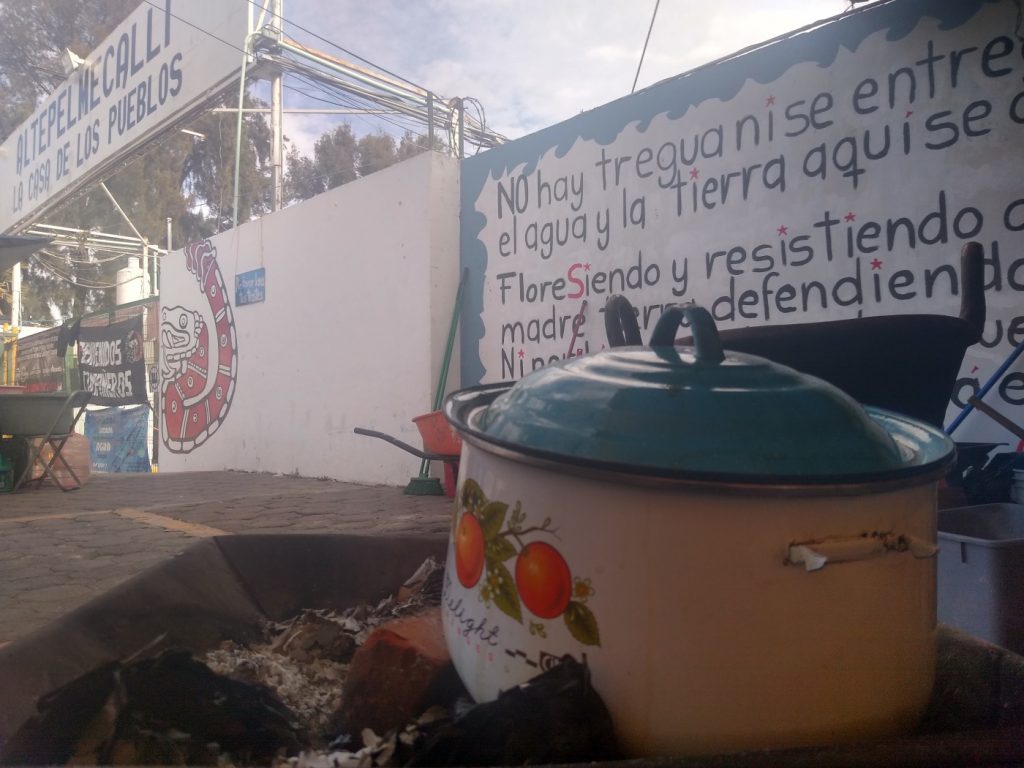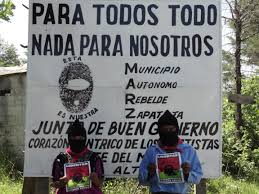
by Gilberto López y Rivas
In these times of tension and uncertainty caused by an unrelenting pandemic and a war in Europe —which in previous century was the terrain upon which two bloody world war conflicts originated, causing millions of dead and wounded—in the national sphere, also marked by the hidden violence of militarized and criminal accumulation, an informative note by Fernando Camacho Servín (La Jornada, 28/2/22) reported an unjustifiable delay by the Federal Executive in sending to the Congress of the Union the initiative of constitutional reform in the matter of indigenous rights, held up in the Legal Counsel of the Presidency.
This delay has caused a group of organizations and communities belonging to the Alliance for Self-Determination and Autonomy (Aldea) to issue a warning to President López Obrador, pointing out the paradox that, while it is his initiative, he has another agenda to promote mega-projects. In other words, Aldea did not rule out that the delay is due to pressure from business groups, and also because the federal government does not want the initiative to represent a brake for its priority projects.
This same coalition, with a presence in at least 10 states of the Republic, in its founding document, dated September 2020, demanded that federal Executive and the Congress of the Union— along with reforms to the legal framework to align with international human rights treaties and the San Andres agreements— “repeal the forms of legal dispossession of indigenous territories which are in effect in the Energy laws and Mining Law, due to the preferential nature of these activities and the figures for surface occupancy; promote a new Water Law, with adherence to rights and respect for community systems; and create a law prohibiting hydraulic fracturing (fracking).” These repeals and others that cannot be deferred to Article 27 of the Constitution —which allowed the sale of ejido and communal lands— are key to preventing the indigenous reform from remaining a dead letter.
In the same document, Aldea anticipates the situation it denounces today, highlighting that the reforms promised by the 4T to advance an effective fulfillment of indigenous rights continue to be frozen, while megaprojects advance even in times of pandemic. It is time to put a stop to the abuses against the communities and to seriously build a new relationship between indigenous peoples and the State based on equality, respect and non-discrimination. Aldea urges the current government to return to the path of its international commitments and obligations and actively guarantee the participation of indigenous peoples in the policies and laws that affect them.
To this end, Magdalena Gómez writes, and I agree with her: Today, as yesterday, the problem of natural resources is at the heart of the aforementioned logic of the State. The logic of the people, in contrast, is subjugated by the narrative of so-called development which, for practical purposes, is the sustenance of dispossession. In addition to this is the imperative of time limits because the government’s mega-projects, by political will, must be concluded in the current six-year term ( La Jornada, 1/3/22).
It is clear that during these three years, the Executive has privileged its paradigmatic megaprojects, such as the misnamed Mayan Train, the Interoceanic Canal and the Morelos Integral Project, over constitutional and legal reforms on indigenous rights.Despite the resistance against the developmentalism that permeates governmental action, and against the process of militarization and criminal paramilitarization that accompanies it, the current government uses a double discourse that, nevertheless, makes it increasingly evident that it is the corporate business interests that are in fact imposing themselves. The seizure of the Bonafont-Danone facilities in Puebla by the Army and the National Guard is a significant example, as are the permanent aggressions, the selective assassinations, like that of Samir Flores Soberanes, and the criminalization of community opposition and the solidarity environment that accompanies them in the rural and urban geography of this country.
Possibly, the initiative on indigenous rights will come out of dormancy and be sent to Congress, but not before guaranteeing that the priority programs will be successfully concluded during this six-year term. It will change everything to stay the same.

The Zapatista assertion that we should not expect anything from those above is confirmed. Only the anti-capitalist, anti-racist and anti-patriarchal resistance of the peoples, coming from the territories, can make the just demands for autonomy and self-determination a reality.
This article was published in La Jornada on March 4th, 2022. https://www.jornada.com.mx/2022/03/04/opinion/016a2pol English translation by Schools for Chiapas.
